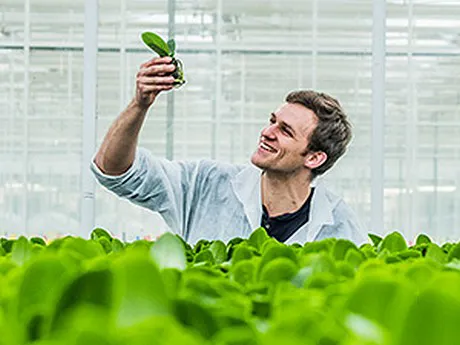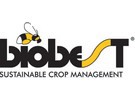Based in Lochristi, Belgium, Microflor is increasingly choosing biological products to protect its young phalaenopsis plants. To prevent the fungal disease Pythium, the breeding and propagation company uses Asperello T34 Biocontrol. Arne Steelandt, Quality and R&D Coordinator at Microflor, shares his experiences and explains Microflor’s relationship with Biobest – supplier of biological crop protection.

Can you tell us about Microflor?
“Part of the family-owned Floré Group, Microflor is active in the potted plants branch. Our expertise encompasses breeding, production, commercial distribution, as well as transport. The nursery young plant division of the group, Microflor, specialises in the breeding, tissue culture and acclimatisation of various ornamental plants. Producing some thirty million young plants annually, primarily phalaenopsis, Microflor’s other crops include helleborus and gloxinia.”
How has crop protection evolved throughout the years?
“Year after year we have succeeded in reducing our chemical crop protection usage in the hardening-off of phalaenopsis. To achieve this, we first collected a great deal of information about the diseases and pests present in the crop and continue to search for new products to fit into our integrated pest management plan.”
How did you come into contact with Biobest?
“For several years Biobest has been our chosen supplier of predatory mites, nematodes and sticky traps. We set out to replace the preventative chemical fungicide we used to control Pythium in our phalaenopsis with a biological alternative. The alternative turned out to be the biofungicide Asperello from Biobest.”
What makes Asperello different from other products?
“Asperello was the first product based on a beneficial fungus that we could detect on the roots and the substrate after application. In the past, we carried out tests with other beneficial fungi, even with other Trichoderma strains, but could never demonstrate their presence. As Asperello can be detected in the crop, we can regulate it. I would definitely recommend other young phalaenopsis plant propagators to trial it. Thanks to Asperello, we have succeeded in removing all preventative chemical fungicides against Pythium from our control scheme.“
How is the cooperation with Biobest?
“In recent years we have carried out more and more research collaborating with Biobest – which has been pleasing. It is a win-win for both parties - Asperello is a good example of this. Thanks to Biobest, we have succeeded in reducing our chemical crop protection usage to an occasional corrective application – a practical example of integrated crop protection.”
Is this in-depth cooperation important?
“Definitely. The use of preparations, microorganisms, beneficial insects and mites respond more precisely than chemical pesticides. However, it does require greater knowledge of the crop and there are more contextual pre-conditions relating to the products themselves. As a customer, I expect this information and these quality assurances from the supplier. I feel Biobest definitely focuses the necessary attention on these essentials - I appreciate that.”
 Biobest Belgium NV
Biobest Belgium NV